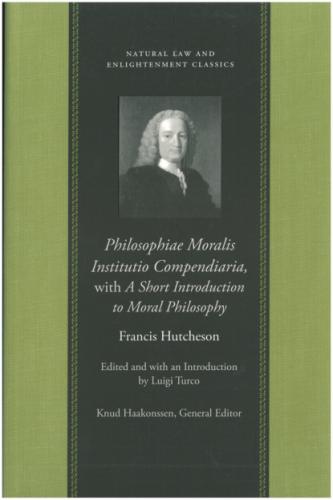3. Four main advantages to be pursued. 294, &c. some civil bond of union among the subjects in which power is lodged. 295. Power rests on property. ib. No unequal privileges. 296. nor impunity in abuse of power. ib. The best number for a state. ib. 297.
4. The advantages and disadvantages of monarchy. 297, 298. and of aristocracies. 298. and democracies. ib. The use of the ballot. ib. 299.
5. The advantages of the mixed forms, and how they should be constituted for the general safety. 299, &c. a censorial power. 301.
Chapt. VII. The Rights of supreme Power, and the Ways of acquiring it. 302.
1. Civil power is determined by the constitution, and fundamental laws. ib. may sometimes be justly revoked or abrogated. ib. No other divinity or sacredness in the rights of princes than in private rights. 303.
2. In every plan of polity the people may have a right of defence and resistance. 304, 305. who should judge in such questions. ib.
3. The nature of an inter-regnum. 306.
4. What is due to good princes. ib. what to such conquered. 307.
5. Liberty natural and civil. ib.
6. The rights of governors derived from some deed of the people. ib. 308.
7. No form more divine than another. 308.
8. A full inquiry into the rights of conquest. 309, 310.
9. The right of punishing can never subject a whole people. 311, 312. <xvii>
10. No patrimonial kingdoms. 313. The conqueror may afterwards acquire a right. 314.
11. Sovereignty how forfeited, and heirs justly excluded. 315, 316. several forfeitures of civil power. 316, 317.
Chapt. VIII. Of Civil Laws and their Execution. 318.
1. The nature and end of civil laws. ib. Liberty of conscience, with a publick leading by the magistrate. ib. 319. Persecution unjust. 319, 320.
2. The example of governors most effectual. 320. virtues to be chiefly encouraged; Temperance. 321. Luxury destructive. ib. Temperance promotes industry. 322.
3. Industry the main foundation of wealth. ib. 323.
4. Justice highly necessary. 323.
5. Fortitude and military arts universal. 324.
6. No subjects should depend on any foreign state or power. ib. 325.
7. Civil laws should confirm the laws of nature. 325.
8. Sanctions of laws various. Honours. 326.
9. The nature of punishments. 327. Intentions how punishable. 328. What respect of persons lawful, what unlawful. ib.
10. Punishments of corporations. 329.
11. Obligation to pay tribute. ib. 330.
12. The duties of subjects toward governors, and others. 330.
Chapt. IX. The Laws of War. 332.
1. What requisite to an open, solemn war. ib. Civil wars favourable. 333.
2. Publick law, necessary or voluntary. ib. Laws of war. ib. 334.
3. Voluntary laws of war. 335.
4. Rights of reprisals. ib.
5. Laws relating to neutral states. 337, &c.
Chapt. X. Of Treaties, Ambassadors, and the dissolution of Civil Societies. 341.
1. The nature of publick Treaties. ib. Hostages. 342.
2. The natural rights of ambassadors. ib. their customary rights. ib. subject to no foreign court. ib. 343. their houses sanctuaries. 343. their powers over their own retinues. ib. just defence against them. 344. Precedency. ib.
3. How states are dissolved. ib.
4. Rights of alienating provinces. 345. of giving up citizens. 346.
5. What rights when a state is dissolved. ib. and revives again. ib. 347.
Our duty to our Country. 347.
PHILOSOPHIAE MORALIS
INSTITUTIO COMPENDIARIA
CAPUT I De Hominis Natura ejusque Partibus.
I. Quemadmodum caeterae omnes artes et disciplinae, bonum aliquod {naturae accommodatum} consequendum tanquam finem suum respiciunt; Philosophiam moralem, quae vitae totius ordinandae ars est, finem spectare longe praestantissimum necesse est; quum se ducem profiteatur, quantum hominum viribus fieri potest, ad vitam [eam quae maximè est secundum naturam, quam docet etiam esse beatissimam] [beatam], cui inservire debent omnia quae caeteris artibus effici possunt. Suo igitur jure in caeteras imperium sibi arrogare videtur{, eatenus saltem ut praescribat quasnam quisque, et quem ad finem, excolere debeat}. Quum [vero communis haec sit anticipatio sive naturae judicium, quod in animorum affectione aliqua aut habitu, atque actionibus consentaneis] [autem constet inter omnes, in virtutibus ipsis, atque in officiorum functione], vel situm sit [esse] illud Beate vivere, vel eorundem <2> ope {parari et} obtineri; [in quo philosophorum omnium, rationibus utcunque discrepantium, consentit oratio, docentium in ipsis virtutibus officiorumque functione, summi boni adipiscendi, sive beate vivendi, spem omnem esse sitam;] [(si modo virtutem appellent “vires animi aut habitus praestantissimos,” atque officia, descriptione hujusmodi rudi & generali, “actiones omnes quae ex virtutibus proficiscuntur,” aut quae, secundum rectam rationem, hominis summo bono assequendo inserviunt)] in Philosophia morali <tradenda,> haec <duo> imprimis sedulo erunt investiganda, [quaenam vita sit secundum naturam; quaenam beatissima] [in quo sita sit vita beata]; quidque sit ipsa virtus.
Quicunque divina mente et ratione, cum mundum hunc universum, tum genus humanum fabricatum fuisse credit, expectabit in ipsa hominis natura et constitutione [fabrica] repertum iri indicia haud obscura, quae monstrent, quodnam sit hominis {munus et} opus proprium, ad quodnam vitae genus et officia, sit a natura provida et solertissima subornatus; quaenam denique res vitam homini beatam efficere possint. Intrandum igitur in hominum naturam, ut perspiciamus “quid simus, quidnam victuri gignamur,”1 et quos Deus nos esse jusserit. {Dei autem naturaeque voluntas optimè innotescet anquirentibus, quaenam sint ea omnia quae sensu quovis naturali nobis commendantur, quaeque eorum praecipua; ad quaenam appetenda naturâ impellamur; quaenam denique ad vitam beandam vim habeant maximam.} In hac disquisitione leviter tantum attingenda ea quae ad alias pertinent disciplinas [scientias], ut in his praecipue moremur <3> quae ad mores regendos plurimum valent.
More omnium disciplinarum, a notioribus
